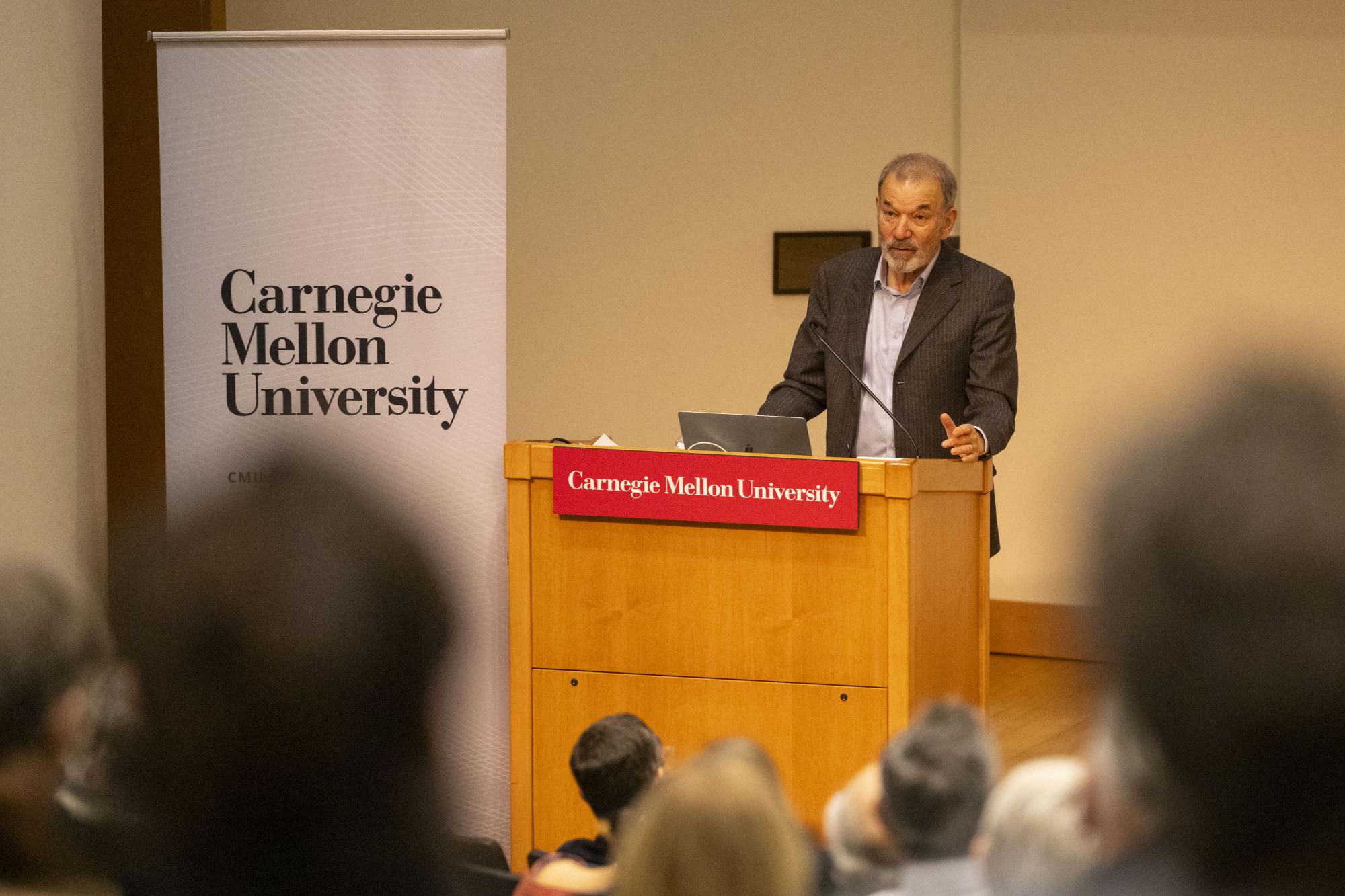
On November 30, the University Libraries and the Center for Print, Networks, and Performance (CPNP) welcomed Cogan University Professor of the Humanities at Harvard University Stephen Greenblatt to deliver his lecture “Shakespeare's First Folio and Second Chance.”
About half of Shakespeare’s plays appeared in print during his lifetime, and some may even have been sold at the theater where they were performed. But for half of his plays there was no second chance opportunity provided by print — not, that is, until the publication of the First Folio. Printed seven years after Shakespeare’s death in 1623, “Mr William Shakespeares Comedies, Histories, & Tragedies” was the earliest comprehensive gathering of Shakespeare’s plays in print. The collection published 36 of Shakespeare’s plays, half of which had never been printed before and might otherwise have been lost, including “Macbeth,” “The Tempest,” and “As You Like It.”
Greenblatt’s lecture reflected on the 18 plays that appeared in print for the first time in the First Folio and focused in particular on “The Winter’s Tale,” Shakespeare's supreme play about the possibility of a second chance. He explored the ways the play revisits and redefines themes from Shakespeare’s earlier works, and touched on key events in Shakespeare’s own life that might have inspired this new interest in rekindling lost relationships and rectifying past misdeeds.
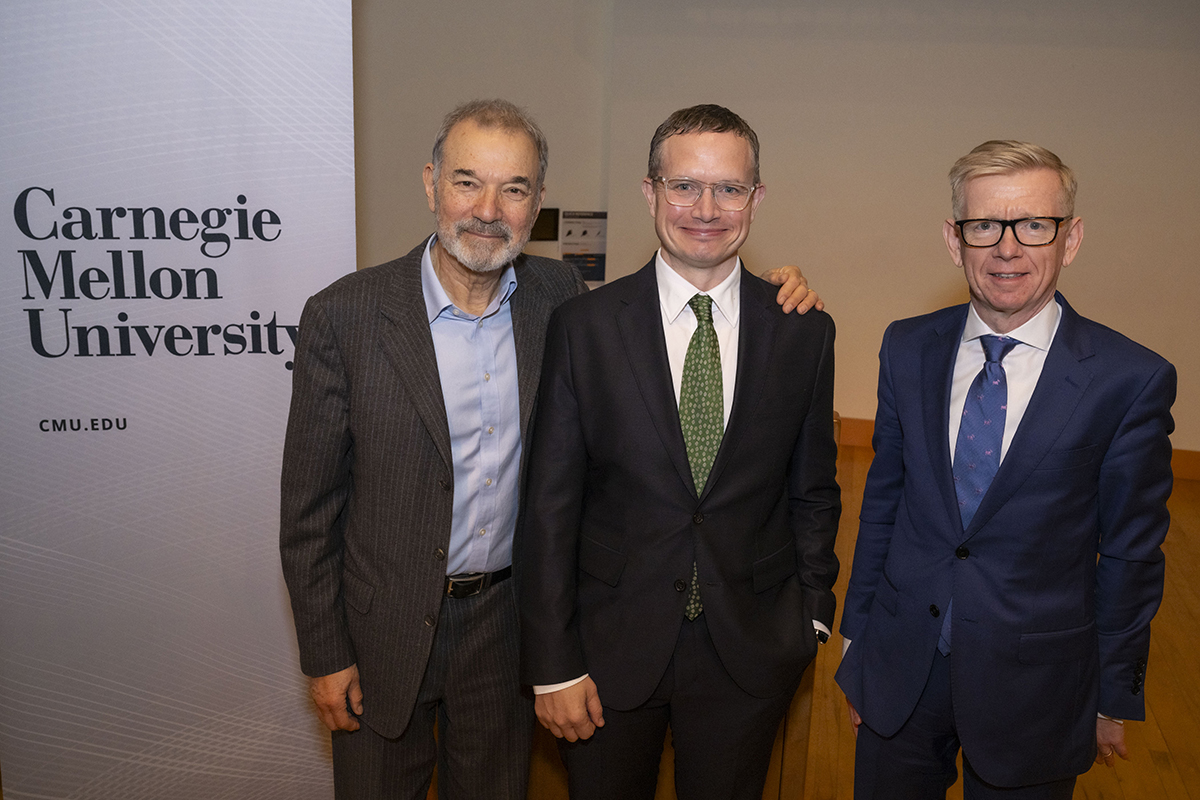
"Professor Greenblatt is one of the most influential and renowned scholars working in Shakespeare studies — or for that matter, literary studies — today. In everything he writes, one finds wit, wonder, stylishness, infectious enthusiasm, and an unparalleled knack for mining the import of meticulously-observed details,” said Associate Professor of English Stephen Wittek. “We were very honored to have him with us here at CMU. I cannot think of a speaker better-suited to the task of helping us to mark the 400th anniversary of the publication of Shakespeare’s First Folio.”
Greenblatt’s honors include the Holberg Prize, the Pulitzer Prize, the National Book Award, and the Mellon Distinguished Humanist Award. He is the author of thirteen books, most recently: “Tyrant: Shakespeare on Politics” (2018), “The Rise and Fall of Adam and Eve” (2017), “The Swerve: How the World Became Modern” (which won the Pulitzer Prize for General non-fiction in 2011), and the biographical study, “Will in the World: How Shakespeare Became Shakespeare” (2004). He is also the general editor of The Norton Shakespeare, founding editor of The Norton Anthology of English Literature, and co-founder of the journal Representations.
The lecture was part of an ensemble of activities organized around the 400th anniversary of the First Folio, a copy of which is held in the Libraries’ Special Collections. Related exhibitions include “Inventing Shakespeare: Text, Technology, and the Four Folios,” housed in Hunt Library, and “From Stage to Page: 400 Years of Shakespeare in Print,” presented at The Frick Pittsburgh.
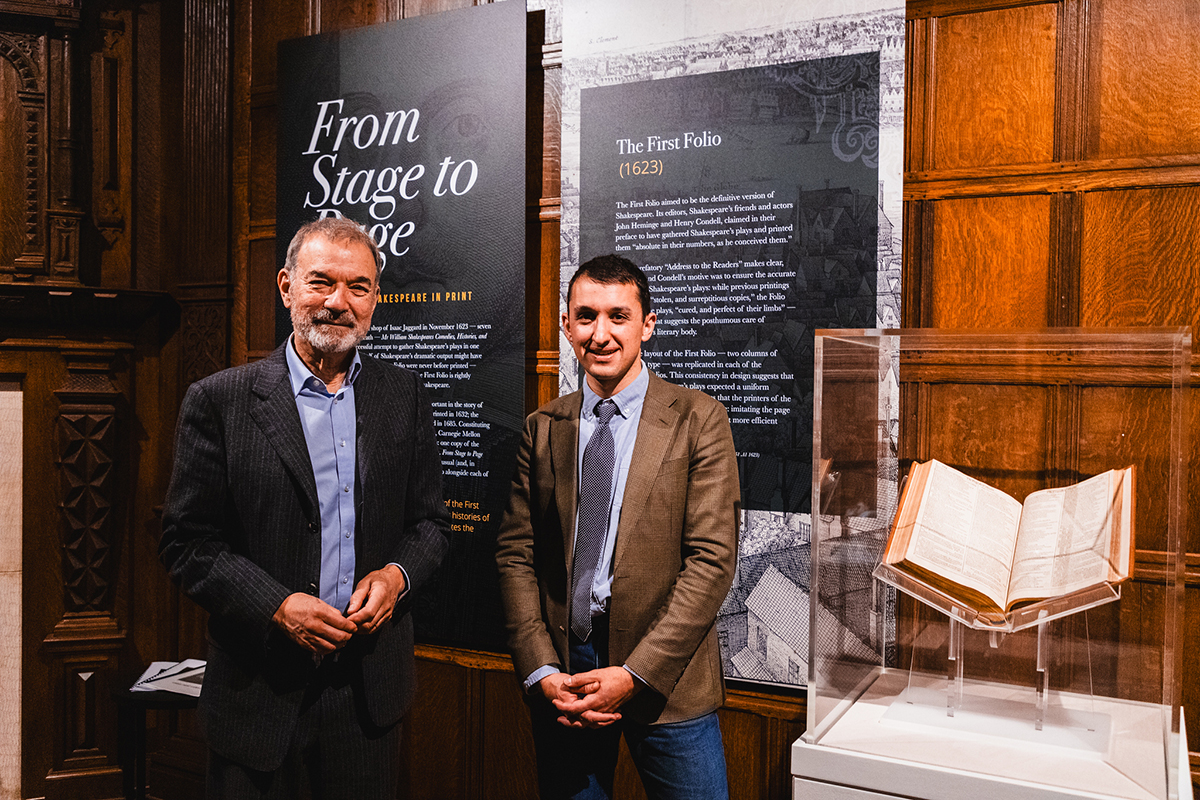
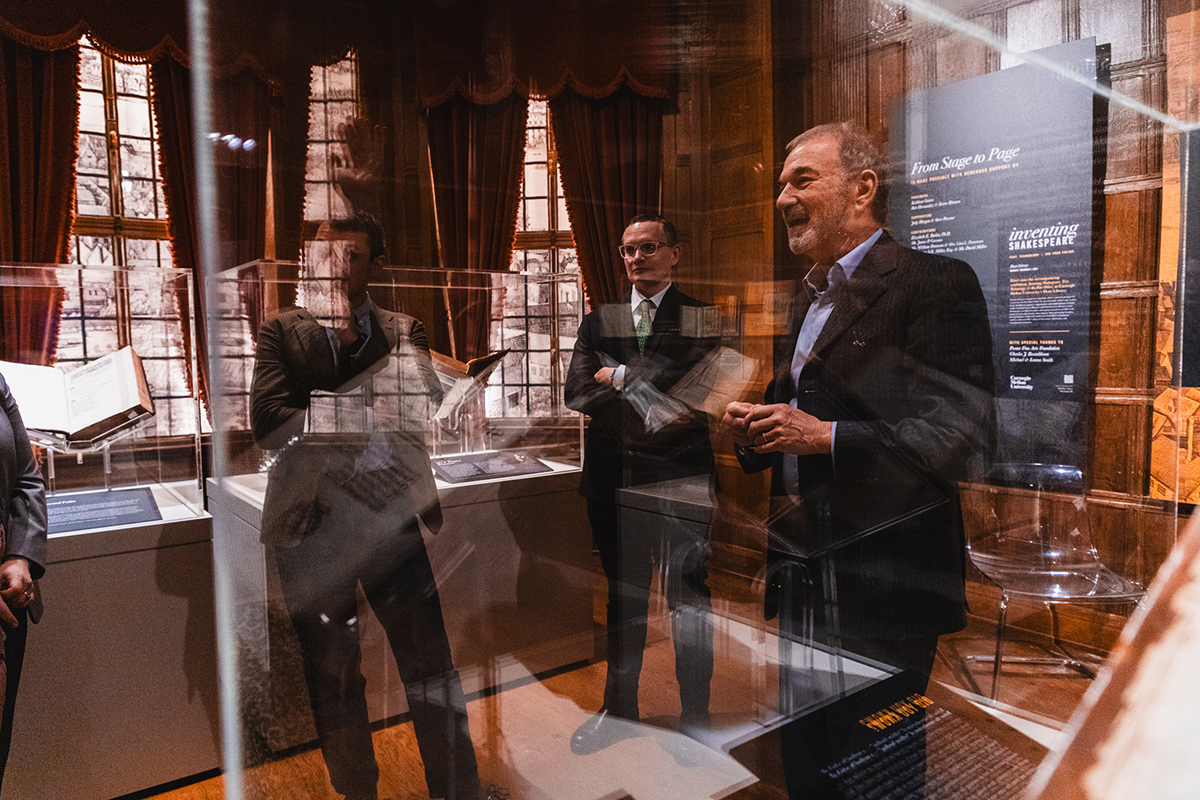
Greenblatt spent the morning of the event at the Frick Pittsburgh. After a private tour of “From Stage to Page” with Curator of Special Collections Sam Lemley and Dawn Reid Brean, the chief curator and director of collections at the Frick Pittsburgh, he led a seminar with fourteen undergraduate and graduate students from Wittek’s Shakespeare courses. Joining the group in informal conversation, Greenblatt invited them to discuss the radical novelty and innovation of Shakespeare’s language and art in “Hamlet.”
“Participating in Professor Greenblatt's seminar was enlightening and informative,” said Elizabeth Dieterich, a doctoral candidate in the Department of English studying Literary and Cultural Studies. “Our conversation about the origins and innovations of Shakespeare's “Hamlet” brought out new perspectives of the play for me, which I will employ in my ongoing research on early modern drama.”
Ph.D. student Laura DeLuca, who is also studying Literary and Cultural Studies, was another attendee at both the seminar and the lecture. “Professor Greenblatt's seminar and public lecture were fantastic opportunities to engage with his groundbreaking scholarship in Shakespeare studies. His seminar provided the rare chance to ask one of the most influential Shakespeare scholars to date questions about his work. His public lecture was equally inspiring, and well-attended by Carnegie Mellon University students and faculty, as well as the Pittsburgh community more broadly,” she explained. “As a Ph.D. student studying early modern drama, this scholarly experience is one I will never forget. It is a true privilege to be a part of the Early Modern Center for Print, Networks, and Performances, and help coordinate inspiring intellectual events like these.”
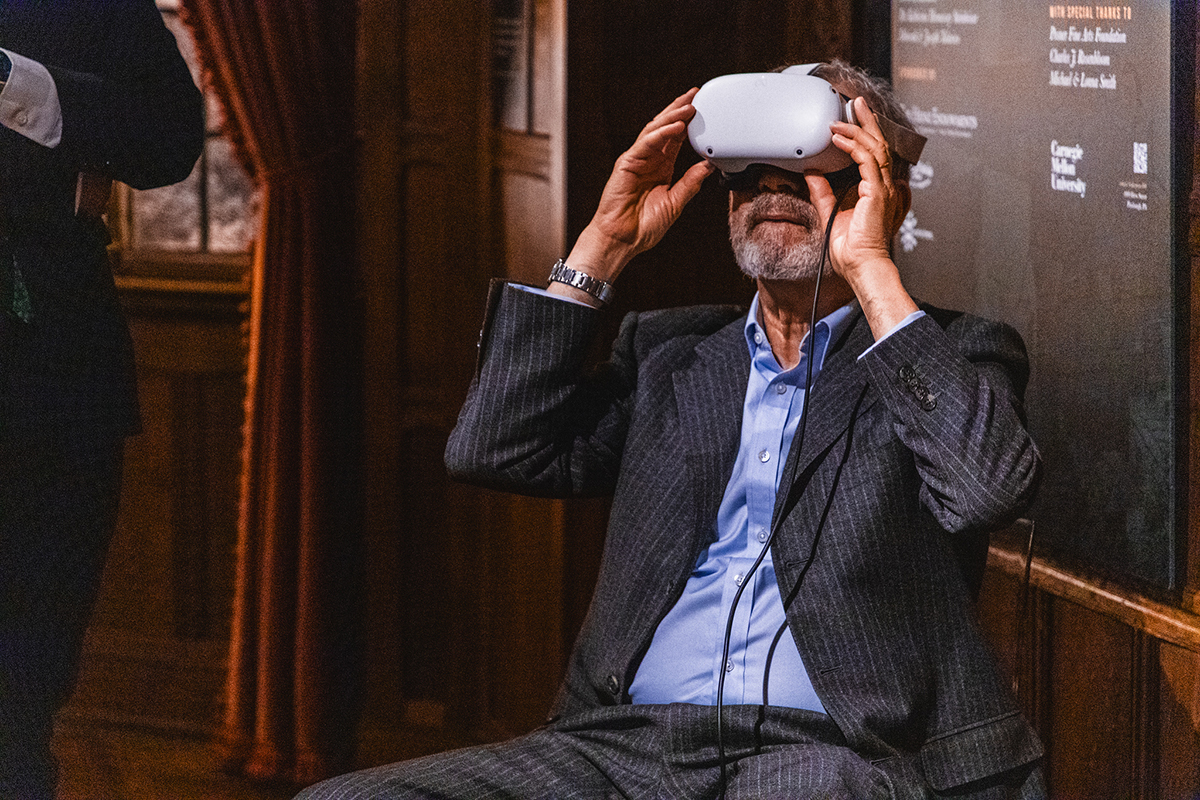
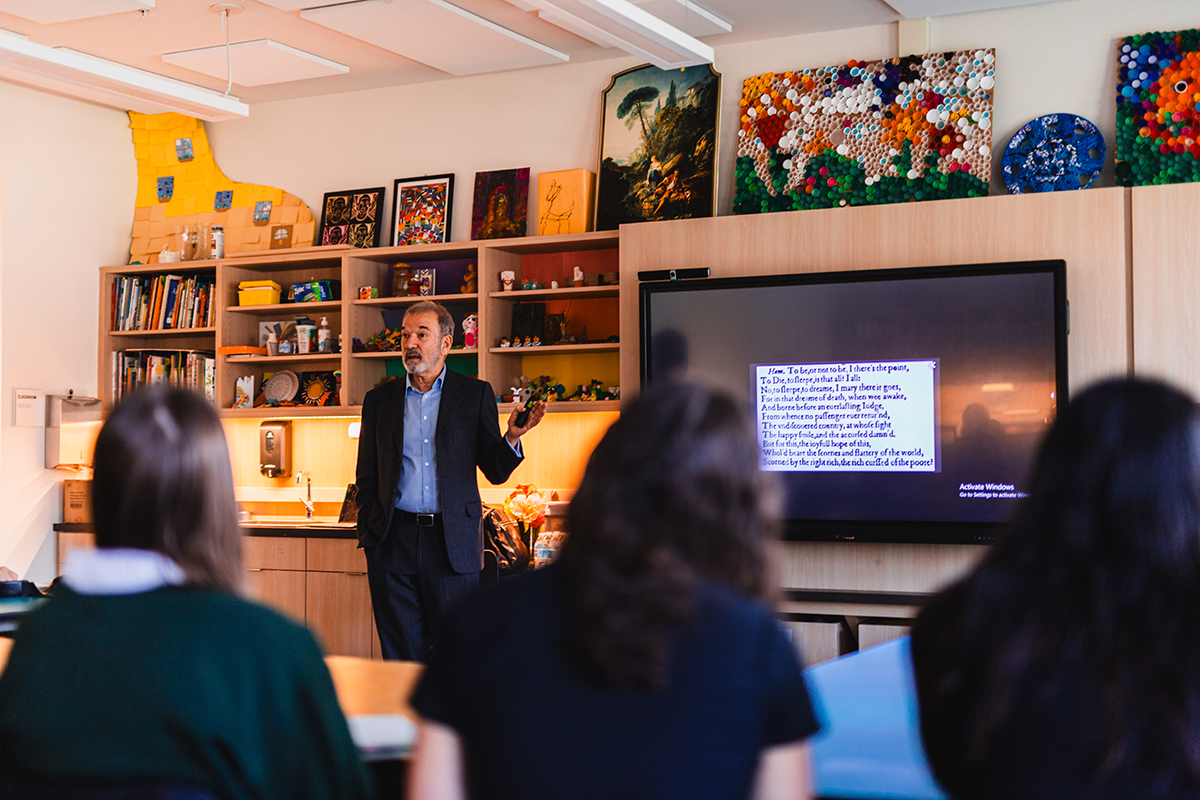
Additional support for the event was provided by the Department of English, The Frick Pittsburgh, The Humanities Center, the Center for the Arts in Society, the School of Drama, the Department of History, and the University Lecture Series.
In the spring, the celebration of Shakespeare’s plays continues with the publication of “The Four Shakespeare Folios, 1623–2023: Copy, Print, Paper, Type,” edited by Lemley. This book seeks a new direction for Shakespeare bibliography — one that trends toward more discursive, contingent, and embodied evidence and away from questions of textual priority. Written by leading scholars of Shakespeare in print, the chapters present an overview of current research and relate new work on unsettled questions about the bibliography of Shakespeare’s plays.
The book challenges the view that the survival of Shakespeare’s plays was due primarily to the survival of the First Folio. Rather, the four Folios each contributed to the gradual elevation of Shakespeare in the English literary canon. Preorder a copy at the Penn State University Press website.
You can support this work with a gift to the Special Collections Acquisition Fund.
by Sarah Bender, Communications Coordinator
